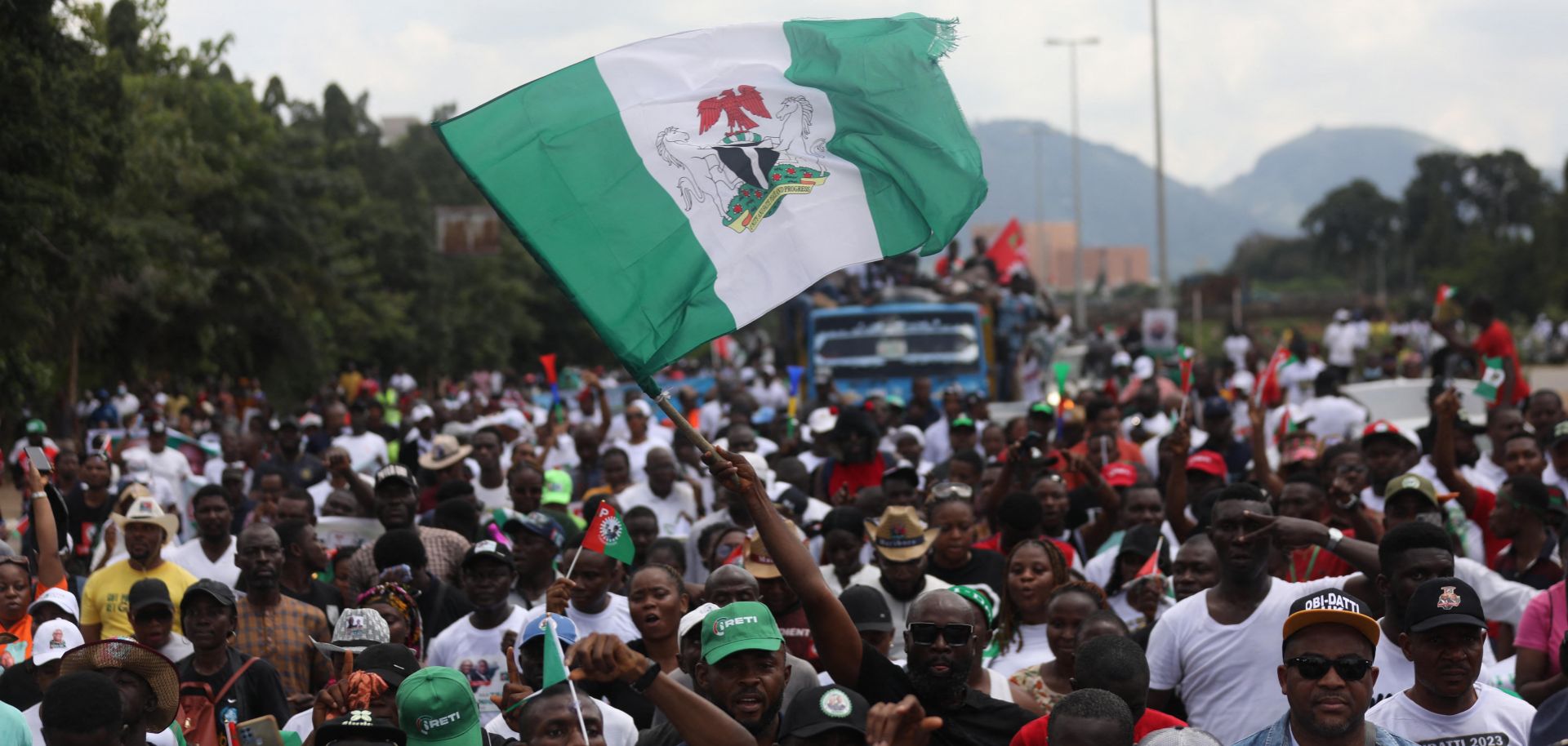Poor economic conditions and a failed informal power-sharing agreement mean that Nigeria's presidential campaign season will likely usher in a period of increased violence, corruption and fraud, thereby raising reputational and security risks in West Africa's largest economy. The campaign season for Nigeria's February 2023 general elections officially kicked off on Sept. 28, marking the beginning of what will be a highly contested race. The country's two largest parties -- the ruling All Progressives Congress Party (APC) and the Peoples Democratic Party (PDP) -- have both nominated presidential candidates who, if elected, would break with Nigeria's informal power-sharing system, which for decades has facilitated the rotation of presidents between the country's six ''geopolitical zones'' to promote a fair regional, religious and ethnic distribution of power. APC candidate Bola Tinubu and PDP candidate Atiku Abubakar are from the country's southwest and northeast zones, respectively, even though this unwritten tradition dictates that...

